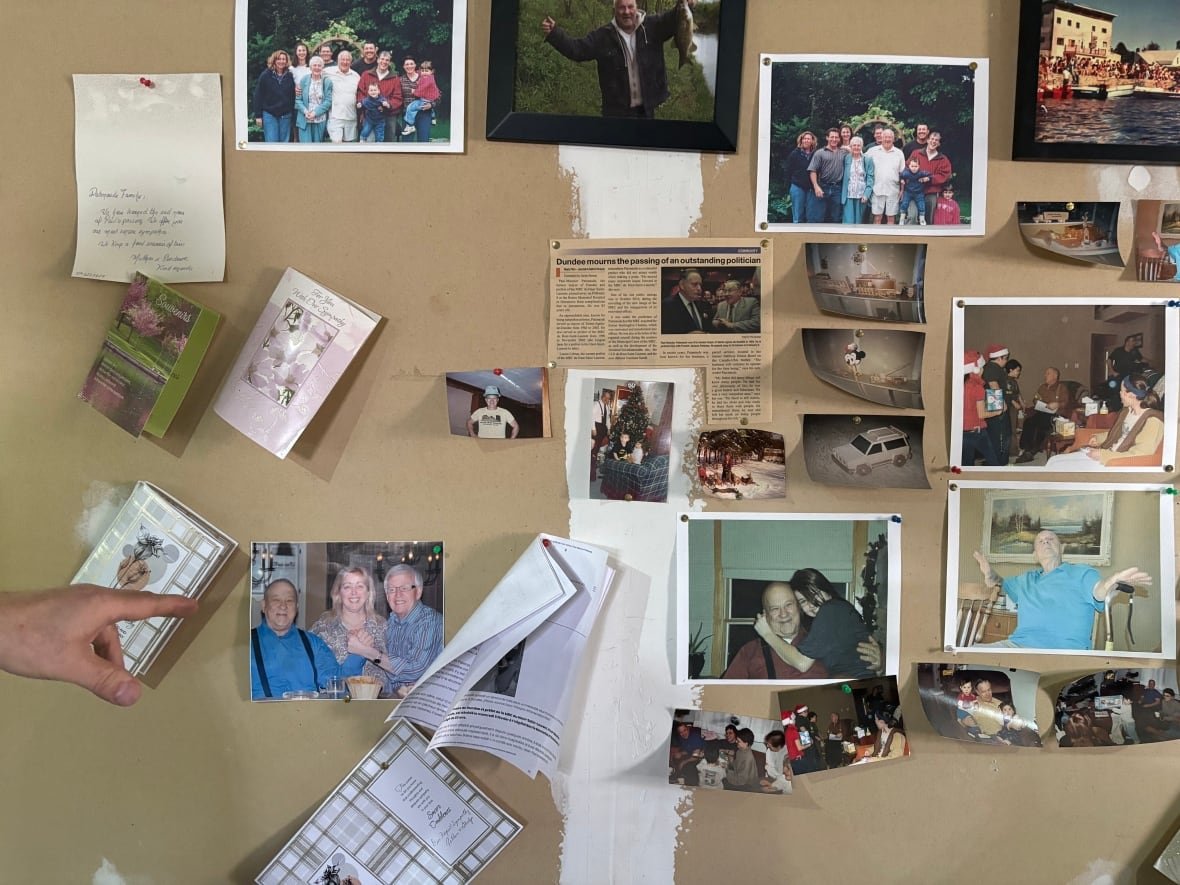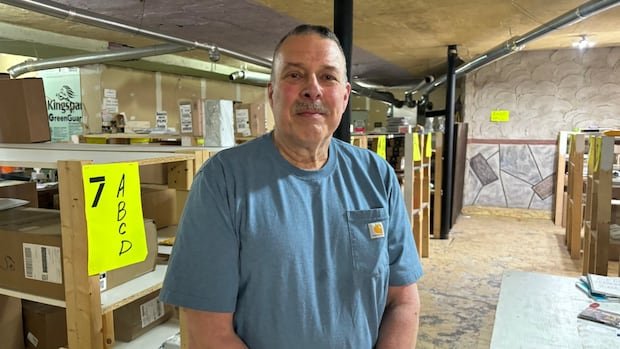Tariffs are spelling uncertainty for a family business that allows Canadians to use its U.S. shipping address to receive packages from the States.
Halfway House Freight Forwarding is an aptly named parcel pick-up spot that sits halfway between the official Canada-U.S. border crossings in Dundee, Que., and Fort Covington, N.Y.
One red door leads to Canada, the other to the United States, and Canadians have been using it for decades to make purchases online from U.S. stores that don’t ship across the border.
Canadian customers enter the property by driving along Chemin de Dundee Centre, a gravel road about 100 kilometres south of Montreal.
The main floor of the house is split down the middle by a black line, marking where Canada ends and the U.S. begins.
Customers can walk on either side of the line to pick up their packages, which are stacked high on handmade two-by-four shelves created by the Patenaude family.
“It was something back in the day, we had a lot of people here,” said Louis Patenaude, who runs the business with his siblings. His father, Paul-Maurice, bought the building in the 1950s and moved his family there from Montreal’s South Shore.

Paul-Maurice transformed the building from a hotel into a bar, which Patenaude says became a centre for the small cross-border community and tourists. His father eventually went on to become the mayor of Dundee and prefect of the MRC du Haut-Saint-Laurent, before he died in 2022.
“We closed the bar in ’90, and Dad was looking for something else to do. And friends were asking if they could use his American address to have products shipped and, you know, ‘go ahead.’ And then one thing led to another and they said ‘you need to start a business.’ And that’s how it started,” Patenaude said.
The bar is still intact on the main floor. Beer bottles are stacked up on display gathering dust and business cards collected over the years decorate the walls between photos.

These days, the house is used only for parcels. Patenaude says they receive packages for businesses, such as car parts for mechanics, as well as personal items for everyday Quebecers who order for many different reasons.
“I ordered a small alpine Christmas tree and an electric bike that was on back order from Costco Canada,” wrote Chantal Barabé to CBC on Facebook, who said she lives around Trois-Rivières, Que.
“Even though it’s a four-hour drive, it’s worth the trip.”

A house at the centre of cross-border issues
With its unique location, Halfway House sits at the crossroads of key U.S.–Canada issues — from border security and currency fluctuations to tariffs and the survival of small businesses in the face of economic uncertainty.
Customers ordering to the location are not exempt from government checks or fees. They must leave the property through the unpaved exit, which leads to a Canadian customs checkpoint around 100 metres away. Patenaude says customs agents won’t ask for a passport, but they will ask about what packages were picked up.
Let’s Go9:14Tariffs spell uncertainty for trading post on Quebec border
One entrance door is in the United States, the other door is in Southern Quebec. And it’s become a place that receives U.S. packages for Quebecers. Our Sarah Jesmer spent an afternoon there and she brings us the story.
The Canada Border Services Agency (CBSA) said it collects duty and taxes on imported items, including for online shopping orders.
“We screen all goods entering Canada to make sure they are properly declared and meet import requirements,” said CBSA spokesperson Luke Reimer in an email to CBC.
A levy of 25 per cent on some goods coming from the U.S. has been in place since March 4.
“The CBSA works in an operating environment that changes on a daily basis and we are ready to respond and adapt as needed,” said Reimer.

Patenaude said business has slowed down over the last few months, and uncertainty is the only sure thing. Customers pay a fee to use the Halfway House service. If less Canadians buy U.S. products due to buy local campaigns or tariffs, it could spell trouble for the family business.
“All I can see is anything to do with tariffs is going to affect the common person. They’re the ones that are going to pay on both sides,” he said.
While Patenaude says he understands Canadians’ push to buy local, he believes there’s still a need for them to have a reliable way to import goods from the U.S.
“I’ve got a lot of people that I’ve talked to that are saying, ‘we can’t stop, we can’t get it anywhere else.’ So regardless, especially the business people, the consumer is going to pay the brunt of the cost because that’s where it all boils down to.”

Patenaude says his family intends to hold as steady as possible as the trade war continues, but in the meantime, he hopes the future holds renovations for the building so they can keep it going — and preserve family memories.
“Right now we’re just trying to maintain the building to keep it from falling and keep the business going,” he said.
“We’re doing our business, we enjoy doing it and we hope to do the best we can for the people that we have to do it for.”

